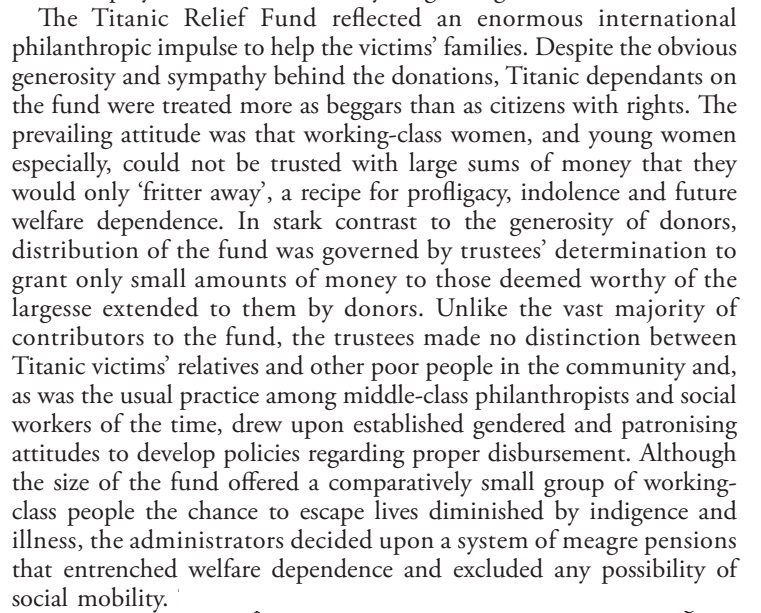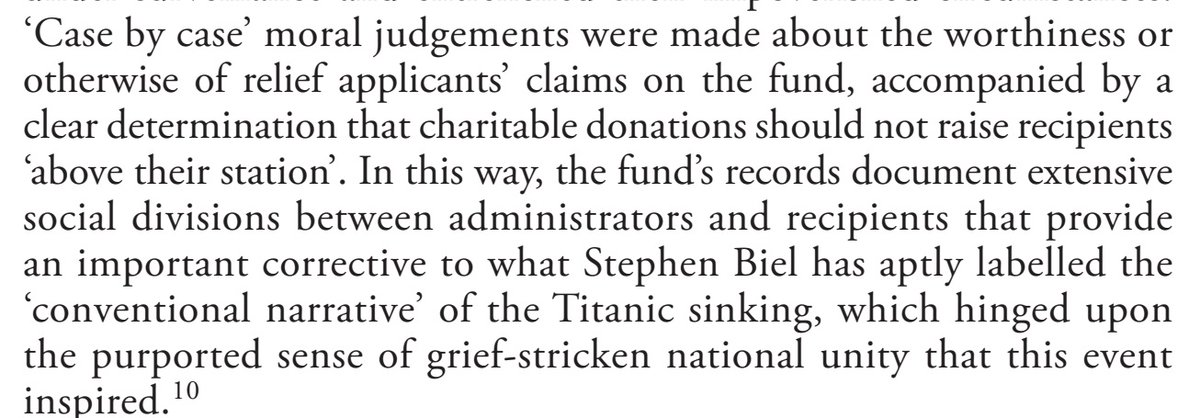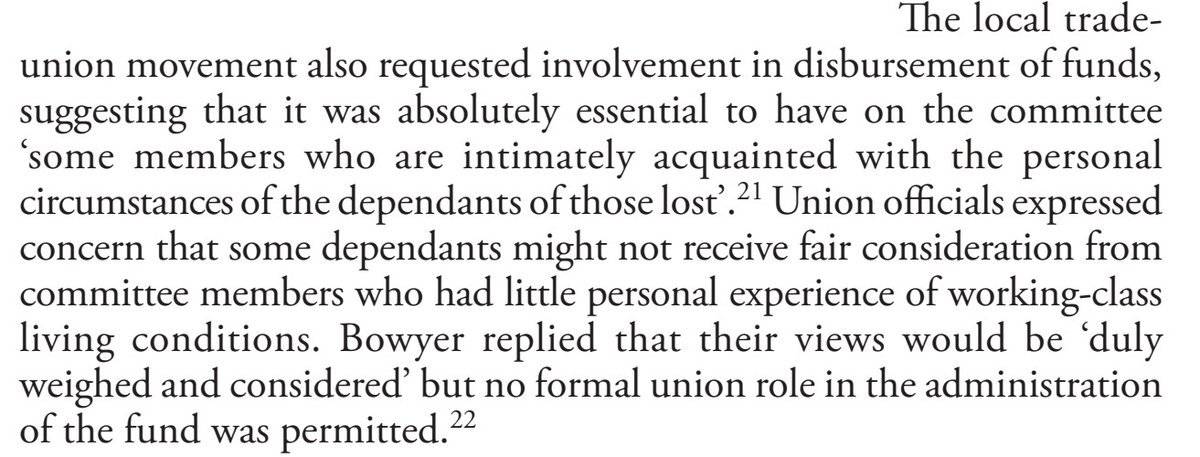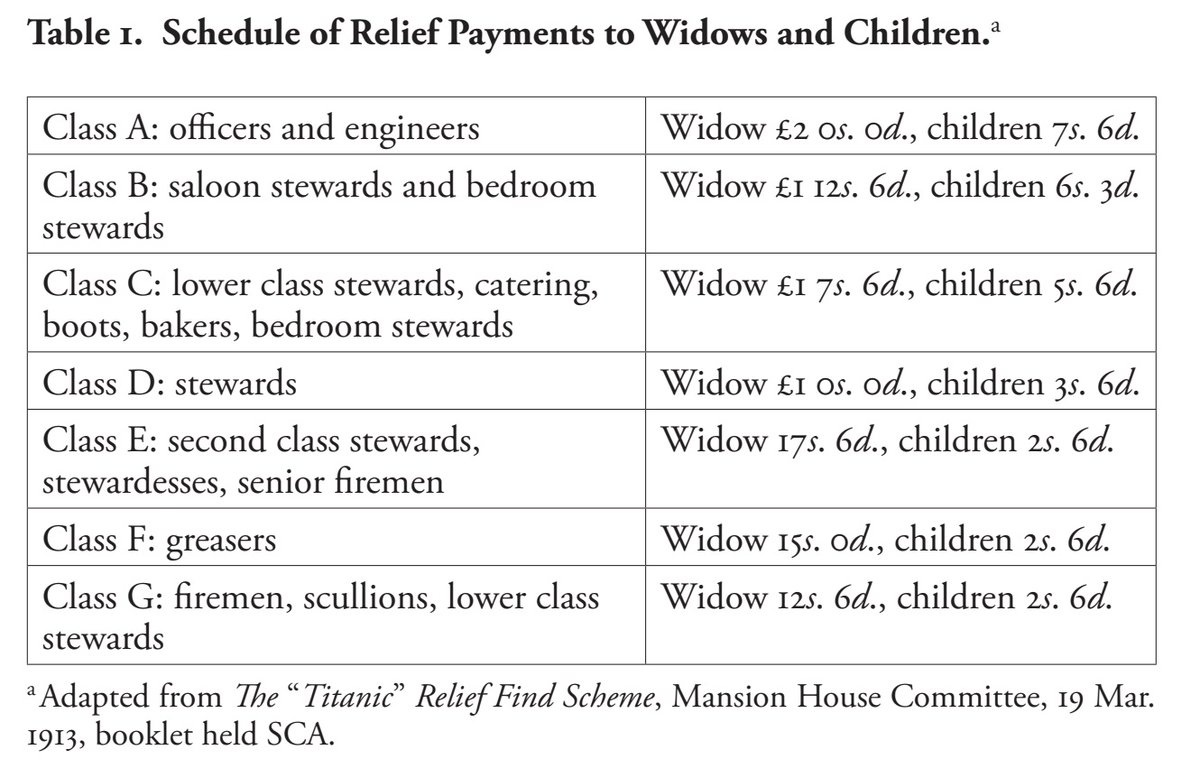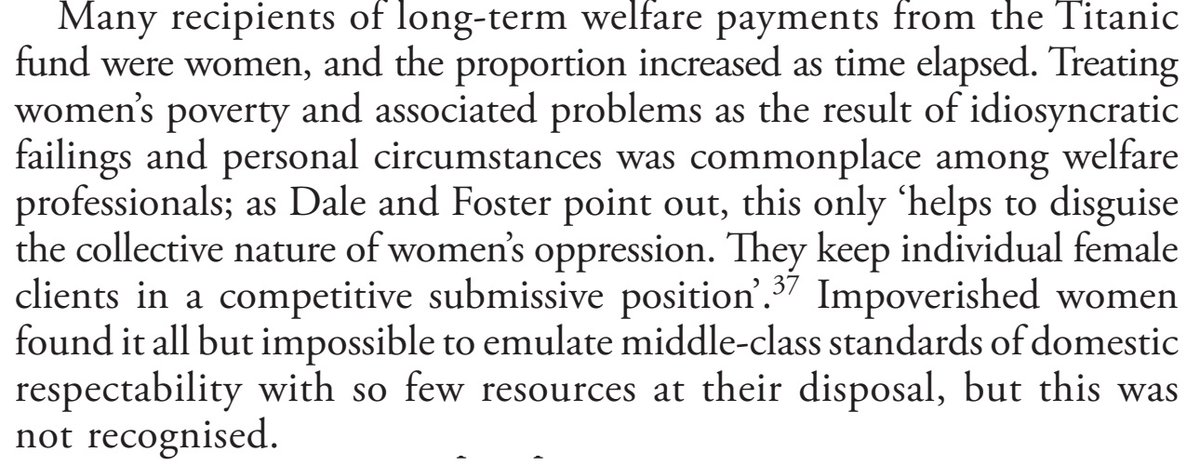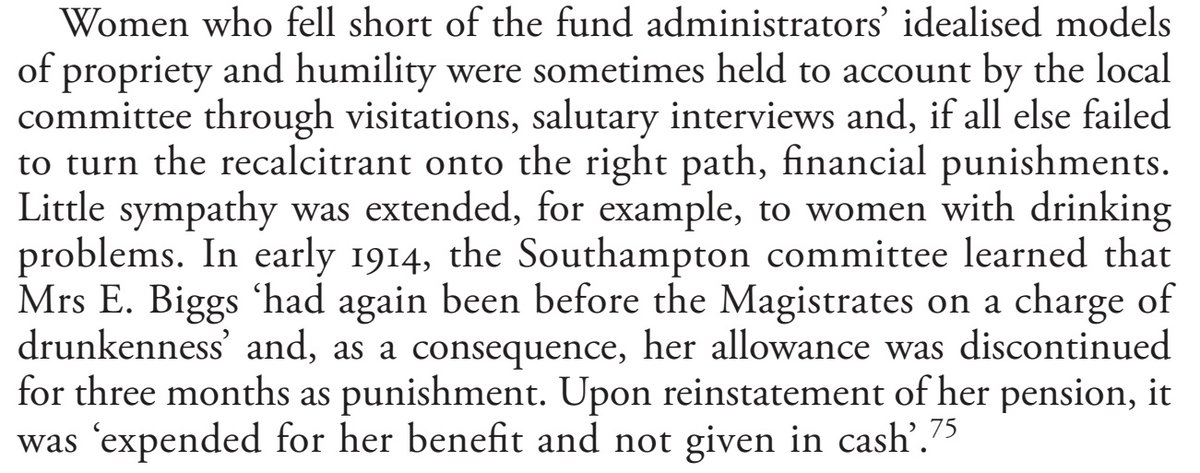On this day in 1912: the Titanic sank on its maiden voyage across the Atlantic.
A prompt for me to check if there are any philanthropy links & discover (once again) a fascinating (and enraging) tale of power, paternalism and mismanagement….
THREAD. 1/
A prompt for me to check if there are any philanthropy links & discover (once again) a fascinating (and enraging) tale of power, paternalism and mismanagement….
THREAD. 1/
I’d say this is definitely one for fans of the “how not to do things” school of philanthropy history... 2/
Before I start, I should spell out that this is entirely based on a great paper by Sarah Gregson, “Women and Children First? The Administration of Titanic Relief in Southampton, 1912–59”
https://academic.oup.com/ehr/article-pdf/CXXVII/524/83/1169161/cer352.pdf">https://academic.oup.com/ehr/artic... 3/
https://academic.oup.com/ehr/article-pdf/CXXVII/524/83/1169161/cer352.pdf">https://academic.oup.com/ehr/artic... 3/
The Titanic Relief Fund was established by the Mansion House Fund under the auspices of the Lord Mayor of London & raised over £400K in donations to help the relatives of victims of the disaster.
There were lots of fundraising events, including concerts & football matches: 4/
There were lots of fundraising events, including concerts & football matches: 4/
And that’s pretty much where the positive stuff ends.
Let’s jump to the paper’s conclusion, as that’ll give you a good sense of what to expect from the rest of the story.
(Spoiler alert: it’s not good) 5/
Let’s jump to the paper’s conclusion, as that’ll give you a good sense of what to expect from the rest of the story.
(Spoiler alert: it’s not good) 5/
One of the big problems seems to have been that the fund’s trustees didn’t think much of:
a)The working class
b)Women
So the fact that many of the beneficiaries were poor widows really didn’t help. 6/
a)The working class
b)Women
So the fact that many of the beneficiaries were poor widows really didn’t help. 6/
The local grantmaking boards (which were inevitably made up of the middle-classes) were driven by a mix of the “scientific philanthropy” principles espoused by the Charity Organisation Society & good old-fashioned moral judginess: 7/
NB: If you want more on the COS and rationality in philanthropy, here’s a big old thread about it:
https://twitter.com/Philliteracy/status/1138421128937033728?s=20">https://twitter.com/Philliter... 8/
https://twitter.com/Philliteracy/status/1138421128937033728?s=20">https://twitter.com/Philliter... 8/
Interestingly, in recognition of this problem, local trade unions tried to get involved in the grantmaking panels and were welcomed with open arms.
Ha- only kidding! Of course they were totally shunned: 9/
Ha- only kidding! Of course they were totally shunned: 9/
The Titanic Relief Fund was in fact so committed to moral judgments, class division and paternalism that it made differential payments depending on the status of the recipient.
Cos, y’know, poor people’s grief is cheaper…? 10/
Cos, y’know, poor people’s grief is cheaper…? 10/
But it wasn’t all class war, oh no.
There was also a really healthy side order of gross gender bias too: 11/
There was also a really healthy side order of gross gender bias too: 11/
Hark, too, at this charming tale of blaming the (obviously female) victims of poverty for the symptoms of their own suffering, and penalising them accordingly.
Cool. 12/
Cool. 12/
As if all this wasn’t bad enough (and it definitely was), the TRF trustees started to look for excuses not to give out money at all- citing depreciated endowment assets dune to interwar inflation: 13/
This stinginess in making grants, allied with the TRF’s extreme lack of transparency, led many to suspect that the funds were either being mismanaged or misappropriated and a growing chorus of criticism. 14/
The TRF was wound up in 1959, but not before the trustees took one last opportunity to disgrace themselves by failing to minute their final meeting & then producing a hagiographic account of the fund’s history that acknowledged no criticism: 15/
So there you go. All in all a pretty sorry philanthropic tale, and enough to make me quite angry even a century later.
And plenty of warnings still relevant to efforts to use philanthropy to address disaster relief today. Fin/
And plenty of warnings still relevant to efforts to use philanthropy to address disaster relief today. Fin/

 Read on Twitter
Read on Twitter



